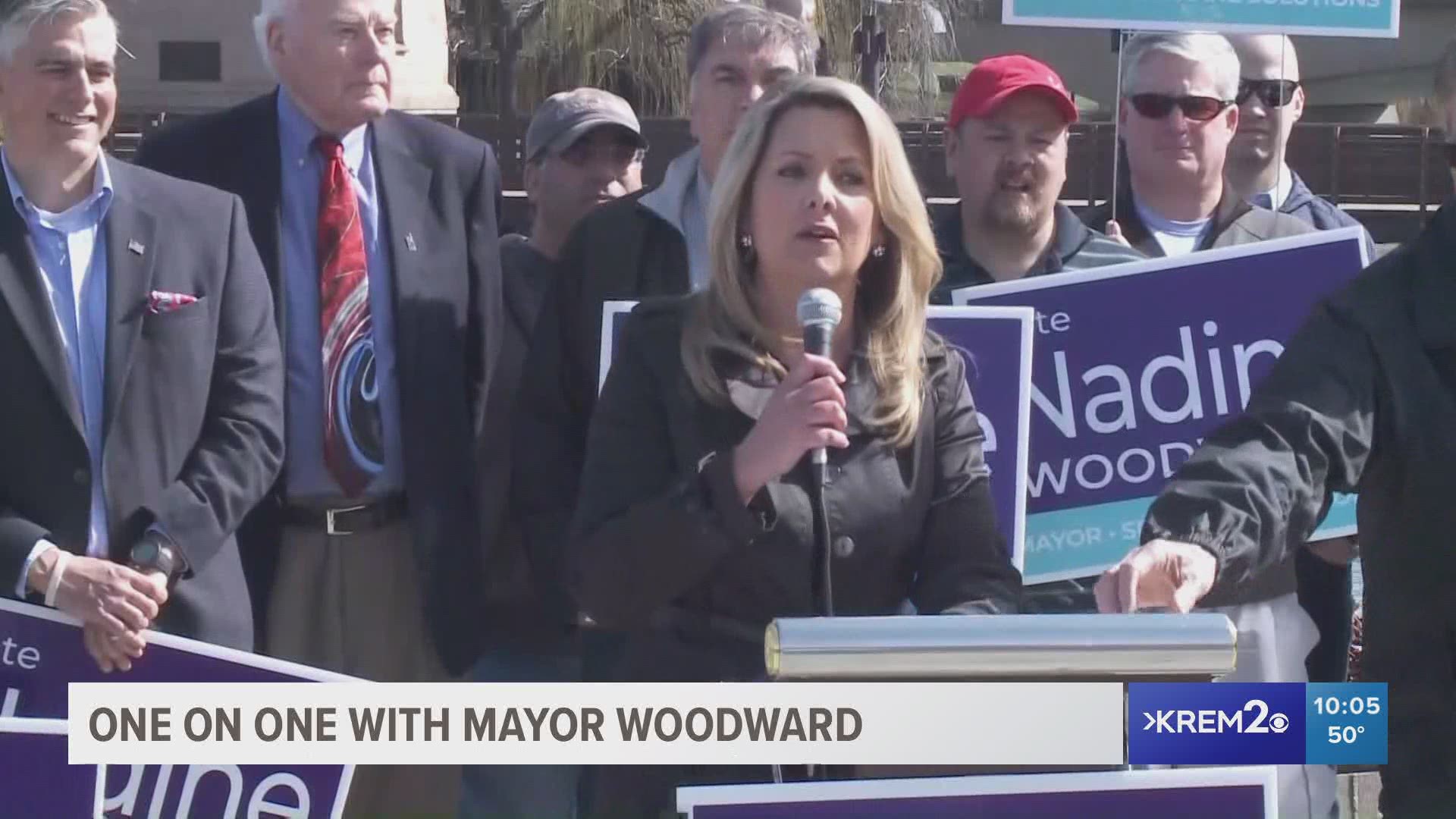SPOKANE, Wash — Nadine Woodward ran for mayor on three main issues: homelessness, property crime and economic development.
But not long after taking office, those issues were dwarfed by another: COVID-19.
Suddenly, the mayor who wanted to loosen regulations on businesses could no longer even promise they could stay open.
"It's not been easy," she said in a retrospective interview with KREM. "It's not been easy for the governor, it's not been easy for the governor of any state. It's not been easy for me as mayor."
Plans for economic development had to be scrapped as the focus switched to just keeping businesses alive.
But other initiatives did push on. Woodward's most well-known, and perhaps only, concrete campaign promise was opening a police precinct in the heart of downtown Spokane.
"And we were able to do that. I'm very, very proud of that," Woodward said. "I worked with the council on that."
Still, citywide, while many crimes are down compared to last year, others like commercial burglaries are up.
"Crime has been a difficult issue under under COVID," said Woodward. "And this seems to be the year that we blame everything on COVID but we have seen some sectors of crime go up. And we'll have to tackle property crime again in 2021."
Woodward campaigned on changing the way the city handles homelessness.
She said that other local governments needed to help out more, and the system should focus more on drug treatment and mental health as opposed to just sheltering.
When it comes to the latter goal, the city does plan to open a so-called bridge shelter.
"That's a program... that will have accountability in it," Woodward said. "Because you can stay 30, 60, 90 days, but you're getting the specific help you need, whether that could be helped with an addiction or mental illness assistance or job training."
However, that program won't launch until next year due to COVID-19.
As for regional help, that's been a sticking point recently. Woodward wanted a proposed youth shelter built outside city limits, but the city council argued that her decision was jeopardizing millions in grant money from the state without a suitable location.
They've since reached a tentative compromise to operate in the city this year while looking to move it to Spokane Valley next year.
"Collaboration takes time. You have to have patience," Woodward said. "We're not all going to agree on the same thing, but we're making decisions together."
Collaboration in general was one of Woodward's main objectives.
Previous Mayor David Condon often butted heads with the city council and its previous president, Ben Stuckart. Woodward and current City Council President Breean Beggs have found much more common ground or at least avoided frequent public disagreements.
In fact, asked if there was one accomplishment she was proudest of in 2020, Woodward said "I would definitely say my relationship with the council members."
Still, there have been conflicts.
Woodward vetoed an ordinance banning mosquito devices downtown as a loitering deterrent, citing feedback from businesses. The council overrode that veto.
The council also approved a contract for fluoridating the city's drinking water over Woodward's objections.
"My position on that hasn't changed and it won't change I am. I think it should be up to the voter," she said.
The city council also rejected a long-in-the-works contract with the police guild, citing a lack of accountability structures during a time when thousands of Spokane residents were protesting for structural changes to the police department.
In response to those protests, Woodward made vague commitments to reform but promised talks about racial justice have also been postponed by COVID-19, she said.
"We want to have those conversations, and we want to have them in person," said Woodward. "So as soon as we are able to do that, under the restrictions of COVID, we will do that. We will begin those conversations."
As for what she hopes to accomplish in her second year, she's cautious about making any promises before she knows how the pandemic will play out.
"I mean, that will dictate a lot of not just what we do, but how we do it," she said.

